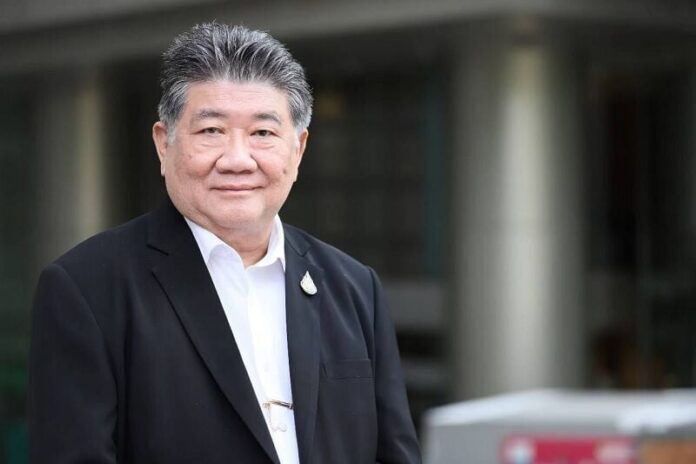The Deputy Prime Minister and Minister of Commerce has tasked the Institute for the Promotion of Thai Arts and Crafts (SACIT) with enhancing Thai handicrafts to boost the economy. This initiative aims to honour the legacy of Her Majesty Queen Sirikit, The Queen Mother.
Deputy PM Phumtham announced policies to advance the SACIT at Bang Sai, Phra Nakhon Si Ayutthaya. The goal is to continue the work of Her Majesty Queen Sirikit by leveraging Thai handicrafts as a form of soft power to drive the economy and generate revenue for the country.
Emphasis was placed on SACIT’s mission to preserve, maintain, and develop Thai handicrafts, positioning the institute as a central hub for valuable artisanal knowledge. Collaboration with the Ministry of Commerce and other partners is key to ensuring the sustainability of Thai handicrafts.
SACIT plays a crucial role in promoting and supporting Thai handicrafts in multiple dimensions, particularly by strengthening the artisans themselves. This support is seen as a vital mechanism to elevate Thai handicrafts as a form of soft power that can significantly contribute to economic growth.
Another essential mission of SACIT is to compile knowledge and databases about master artisans, craftspeople, and their successors, preserving invaluable national wisdom, said Phumtham.
“We must give opportunities to skilled artisans to modernise traditional Thai crafts without losing their unique identity. This will allow new generations and international audiences to engage with Thai arts, keeping pace with a rapidly changing world.”
He stressed the importance of soft power in promoting Thai handicrafts, nurturing traditional wisdom with innovation and technology to create tangible economic value for artisans. He added that the world is changing quickly, and to remain relevant, we must adapt swiftly.
Sustainability insurance
Phumtham noted that SACIT operates under the Ministry of Commerce, which possesses the capability to help communities and businesses grow, particularly in intellectual property, registration, and export promotion.
Collaborative work with partners is crucial to showcasing the unique value of Thai identity, making Thai people proud of their crafts and ensuring the sustainability of these traditions by involving new generations.
Encouraging creativity among young people and fostering collaboration across three generations—Older people, middle-aged, and youth—will generate knowledge that aligns with contemporary times, establishing Thailand as a craft centre. The government is prepared to support this initiative.
Addressing the operational costs of SACIT, Phumtham highlighted the need for collective problem-solving. He outlined policies to transform SACIT into a central venue for various provinces in the central region to host and display events.
The site will also serve as a national coordination centre for tourism and cultural exchanges. The Ministry of Commerce will facilitate the use of this venue by different agencies, encouraging young people to engage with it as a cultural and handicraft learning centre. This will also enable foreigners to experience the spirit of Thai craftsmanship.
By integrating traditional Thai craftsmanship with modern trends and technologies, SACIT aims to create a sustainable economic model that benefits artisans and preserves Thailand’s rich cultural heritage. The initiative underscores the importance of Soft Power as a means to enhance the nation’s global standing and economic prosperity, reported Khaosod.
Economy NewsThailand News



